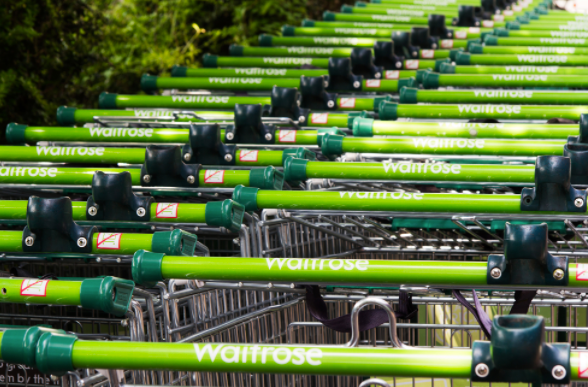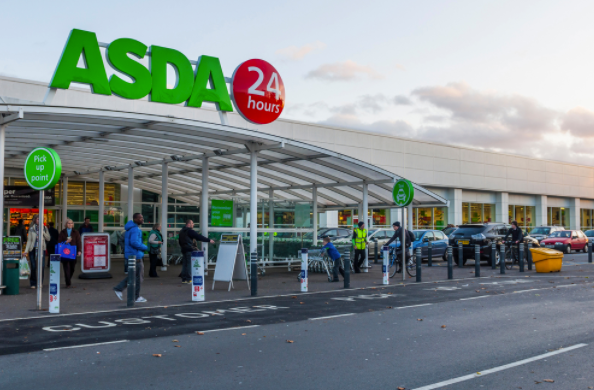Given the disparity between surging house prices and annual salary increases, it should come as no surprise that millennials are facing huge difficulties when trying to buy their first home.
First-time buying has never presented such a tough task, which you’d think would deter the millennial generation from seeking home ownership. However, a recent report from HSBC has revealed that an overwhelming number of millennials still dream of owning a home. Almost three-quarters of those surveyed hoping to get a foothold on the property ladder within the next five years.
Alive and kicking
Tracie Pierce, Head of Mortgages at HSBC UK, said: ‘This study challenges the myth that the home ownership dream is dead for millennials in the UK. With three in ten already owning their own home, the dream of home ownership for millennials is definitely alive and kicking.’
While thrifty saving and effective budgeting has helped many to fulfil their dream of owning bricks and mortar, a large proportion of millennial homeowners have inevitably dipped into the bank of Mum and Dad. Thirty-five percent of millennials relied on parental help with their purchase, and over a quarter moved back in with their parents to save for a deposit.
Skipping brunch
The report also revealed that millennials are willing to make considerable sacrifices to own a home. Despite the popular image of millennials as brunch-obsessed spendaholics, almost half of those surveyed (47%) indicated that they would be willing to cut down on their leisure spending.
Thirty-three percent would be prepared to settle for a smaller property, and sixteen percent would even consider delaying having children.
It pays to save
Housing market woes don’t just affect the millennial generation. Four in ten of all non-owners intending to buy revealed that they hadn’t set a budget at all, while forty-eight percent only had a rough budget in place.
Stagnant incomes and a buoyant housing market represent a major obstacle to buying a house, but there are steps which can be taken. Planning early, finding a competitive mortgage and budgeting beyond the purchase price can all help to make your dream of home ownership a reality.
The Darwin group – which offers secured and unsecured loans to customers through Evolution and Progressive Money – is delighted to announce a new funding facility of in excess of £75m which supports the Groups objective of becoming a leading consumer finance brand in the UK.
The award-winning Evolution, ranked as one of the fastest growing finance companies in the UK as recognised in “The Sunday Times Virgin Fast Track 100”, and its sister company Progressive Money, have built up a substantial loan portfolio, having lent more than £120m in just over 5 years.
Joining the original funding partners, NatWest and Shawbrook Bank, are Insight Asset Management and another UK-based private credit manager, all four of whom have significant experience in financing consumer finance lenders and a shared desire to see Evolution and Progressive Money increase market share through both organic growth and the development of new and innovative products.
Steve Brilus, Chief Executive of Darwin said “We are entering an exciting new phase of growth and I am delighted to have such forward-looking and supportive funding partners investing in our business. This funding provides the springboard to enable us to achieve our ambitious plans and to take Evolution and Progressive Money to the next level”.
Evolution and Progressive Money were advised by the Financial Services Corporate Finance team at EY.
Mat Beaver, Managing Director of Darwin said “We are grateful to Nick Parkhouse and the team at EY for facilitating this transaction. They have worked closely with us in understanding our business and our plans, and have supported us throughout the process.”
A recent national report conducted by Halifax has found that people living in nearly one-third of local authority districts in the UK are earning more from simply owning a house than they are from their job.
The report details that surging house prices across the country are rising at a faster rate than many people’s annual salary, particularly when viewed over the course of two years or more. This is the case in 31% of all areas surveyed.
Perhaps unsurprisingly, this trend is most prevalent in London and the surrounding areas. For example, at the upper end of the scale, the average homeowner in Haringey has seen the value of their house shoot up by approximately £91,000 over the course of two years. Roughly, this equals to houses rising by nearly £4,000 per month, which is more than the average homeowner’s monthly income.
The problem for non-homeowners across the UK
Even though salaries for people in 69% of areas across the UK at least match the rise in house prices, the problems for first-time buyers remain daunting all the same.
Martin Ellis, housing economist at Halifax, said: “Buoyancy in the housing market over the past two to five years has resulted in homes increasing in value by more than total take-home earnings for the average homeowner in many areas, though mostly in southern England’’.
“While it’s no longer unusual for houses to ‘earn’ more than the people living in them, in some places, there are clearly local impacts. Homeowners in these areas can build up large levels of equity quickly but for potential buyers whose wages have failed to keep pace, the cost of buying a home has become more unaffordable during that time.”
It’s hard to believe that we’re almost coming up to a decade since the ‘Great Recession’ that began in December 2007. And although our economy went on to avoid a double dip recession, in the five years that followed, is it fair to say the knock-on effect of the financial crisis is still being felt across the country?
A recent national study led by the Institute for Fiscal Studies suggests that is very much the case, and has even predicted that the average household income in the UK is unlikely to grow for the next two years.
Looking further ahead, the report also suggests that in five years’ time households will only be 4% better off than they are now – which, if true, will mean that UK families face the tightest average income squeeze in 60 years, since World War II.
Getting ahead with your finances
For the average UK household, the risk of financial struggles in the future is not something to put aside until that prospect becomes reality. Chances are, families may find they are up to £5,000 worse off per year than they might expect.
That means forward planning to ensure that any fall in real income doesn’t come as a surprise. Whether means putting a bit of extra cash away now, or preparing to cut down on spending in the next few years – it’s likely to pay dividends in the long run.
With Storm Doris now making her way onto UK shores, the Met Office has issued weather warnings across the country, declaring that the ‘weather bomb’ is likely to cause significant damage to buildings and houses.
In fact, the storm may be far more damaging than first predicted, with experts saying it has since gone through a phase known as ‘explosive cyclogenesis’. There’s no doubt that reported winds of up to 80m/ph will cause havoc among residences in affected areas of the country.
And as your beloved roof panels try to withstand a very tough test, now seems like as good a time as any for those homeowners without home insurance to consider the range of options out there.
Finding a home insurance plan that works for you
For most of us, our home is the single most valuable asset in our possession, which makes a robust home insurance policy essential to protect a property against all manner of eventualities.
Recent national research led by Consumer Intelligence shows that the average cost of home insurance coverage has increased by an average of 1.8% in the past year. This means that a standard policy is likely to cost around £124, and even more for over-50s for whom the increase is as much as 3%.
However, it’s not enough to just go for the cheapest price you manage to find; it always pays to check what is actually covered in each package. From weather damage to theft, there are a wide range of factors to consider – so make sure you double-check the lot before signing on the dotted line!
In what is now an annual tradition, leading comparison website Which? have announced their definitive UK supermarket rankings.
The results follow a nationwide survey in which over 7,000 shoppers from across the country were quizzed on a broad range of customer satisfaction measures, both in store and online.
The best
Renowned upmarket grocer Waitrose topped the overall in-store experience for the third year running, coming in with a customer score of 74% overall. That said, Waitrose were only marginally ahead of both Marks & Spencer and, perhaps surprisingly, Aldi.
But while both Waitrose and Marks & Spencer gained plaudits for their spacious store layouts and helpful staff, Aldi was highly commended for its fantastic value for money and quality own-brand products. Aldi’s prominence also indicates that the average price of goods was a major factor this year.
Meanwhile, Iceland ran away with top spot in the online supermarket rankings with 77% customer satisfaction, another surprise.
The Worst
On the other end of the scale, Tesco, Sainsbury’s and particularly Asda suffered poor in-store scores in comparison. This was largely down to the unavailability of popular items and average food quality compared with other supermarkets.
Asda also ranked joint bottom of the online rankings, along with Sainsbury’s and Waitrose. All things considered, it doesn’t look like it’s been the best year for the bigger supermarket names, with many people seeming to seek an alternative option for their weekly shop.
The results in full
Waitrose – 74% in-store/71% online
Iceland – 69% in-store/ 77% online
Marks & Spencer – 73% in-store only
Aldi – 72% in-store only
Lidl – 72% in-store only
Morrisons – 70% in-store/74% online
Sainsbury’s – 67% in-store/ 71% online
Tesco – 66% in-store/74% online
Asda – 62% in-store/71% online
Ocado – 76% online only
This week, Communities Secretary Sajid Javid announced the UK Government’s plans to revitalise the UK housing market, stating that the current system is ‘broken’.
But what makes Javid’s plans any different to that of his predecessors? It’s a fair question given that housing has been somewhat of a perennial problem facing the Government for the past thirty years. In fact, the challenge of home ownership has never seemed more daunting, particularly for first-time buyers.
In an interview with Sky News, Javid unveiled plans to support small construction firms in their goal to build more houses. A £3bn loan fund is now in place to help these firms build more than 25,000 new houses by 2020, and up to 225,000 in the long term.
Fixing our broken housing market
Today the average house costs almost eight times the average person’s annual earnings – an all-time record in the UK. Such a high housing cost is a significant barrier to social progress, savings and disposable income, especially for the ordinary worker living in Britain.
The government plans for housing are laid out in full in a long-awaited white paper entitled Fixing Our Broken Housing Market. The report is available to download here.
However, Labour have already begun to question these plans in Parliament, with housing spokesman John Healey MP questioning whether this statement of intent is enough to solve the housing crisis faced by millions of people.
It does seem to be a step in the right direction, at least, but is it enough?
This week, the Bank of England made its annual growth forecast for the year ahead, stating that we can expect 2% economic growth over the course of 2017 – a figure that’s bang in line with the government’s inflation target.
While that’s all well and good, what does it actually mean for our standard cost of living, and what has been happening with market prices over the past 12 months?
The key thing to weigh this rise inflation against is the change in average living wage over the same time period. Now, the average wage is just over £28,000, up from £27,600 in 2015, which indicates an increase of approximately 1.5%.
source:https://www.ons.gov.uk/employmentandlabourmarket/peopleinwork/earningsandworkinghours/bulletins/annualsurveyofhoursandearnings/2016provisionalresults
This would lead us to believe that people are 0.5% worse off now than they were one year ago, however it really depends what household factors affect each individual household. Let’s take a look at some key areas of the consumer market to see how specific prices are faring in general.
Housing
According to the Land Registry, the average UK house price at the end of November 2016 was £217,928 – which shows an increase of approximately 7% in just under a year. The average monthly rent is up too, from £819 to £839 over the same period of time.
Experts say that the housing market has already started to indicate signs of recovery after an initial period of uncertainty and weakness following the vote for Brexit.
Energy
The cheapest gas and electricity price rate in January 2016 was £765, according to MoneySavingExpert.com. However, the cheapest price in January 2017 was up by around £70, jumping to £834 overall.
This rise has largely come over the past three months, although it was on the horizon for some months prior to this. Raw energy is generally priced in US currency, which makes the pound’s collapse against the dollar particularly significant for large energy providers, and which explains why we’re seeing such a hike in price over a rather brief period of time.
Food
Perhaps a little surprisingly, food prices were in fact down by 1.7% over the previous year, which means the average family is saving about £2.50 on their weekly shop. It may not seem like much, but for a product applicable to us… every little helps, right?
source: http://www.retailtimes.co.uk/brexit-not-impacted-shop-prices-yet-latest-brc-nielsen-index-shows/
When mobile banking was first introduced as an SMS service in the early 2000s, few could’ve predicted the rapid development that would follow over the course of the next 15 years.
These days, every major high street bank offers a responsive mobile banking app that allows their customers to access account information, statements, make payments and transactions within just a few shorts clicks. Providing you can connect to the internet this makes mobile banking extremely convenient, especially if you’re in a hurry to check your balance or transfer funds.
But what other good reasons are there for you to download a mobile banking app to your mobile? Let’s run through them now…
Keep track of your finances
The ability for customers to check their balance at a moment’s notice is great for those who wish to get a tight handle on their daily, weekly and monthly expenditure. And although there may be certain aspects – such as viewing a list of all direct debits – that you may only be able to do with conventional online PC banking, soon we expect the functionality of both services to be more or less identical.
Many banking apps also offer a well-designed analytics function that allows users to see their main outgoings and how much money they have been spending in comparison to previous months.
It’s just as secure as online PC banking
The fact is that mobile banking is just as secure as traditional PC banking, and follows more or less the same login and password structure. And even if you log in to your banking app and immediately lose your phone afterwards, most apps will log you out after a very short period of inactivity.
This is the future
The growth of the mobile industry is astounding when you look at the figures. A recent national forecast from Statista suggests that the number of smartphone users in the UK will reach just under 45 million this year, which is 70% of the British population.
And that figure is only going one way right now. As a natural development of this rise in usage, mobile banking will become more and more prevalent, and so banks will invest more and more into creating increasingly responsive mobile apps to seek out an edge over the competition.
Despite the relatively mild months of November and December, January’s air has brought with it a discernible nip. As the temperature falls we’re all more likely to give into temptation and hit the heating on; at the expense of a low heating bill at the end of the month, of course.
Electricity-wise, the darker mornings and evenings are also far more likely to see us switch on the lights for an additional few hours every day. Plus, as people generally wear more layers of clothes in winter it’s easy for the washing machine and tumble dryer to be constantly whirring away, particularly in a family household.
So, what exactly can the average UK household do to keep their back pockets in check? Rest a little easier and let Evolution Money run you through some of the best tips out there…
Optimise your timings
The price of gas is the same whatever time of day you choose to put the heating on. This means that, to save as much money as possible, you should be considering two simple factors: outside temperature and occupancy of the house.
Once you’ve worked this out, you’ll be in a good position to work out your most cost effective routine. Bear in mind that most modern boilers now have a timer function, so you can set the heating to turn on for half an hour or so just before you wake up or return home from work.
Change those light bulbs
Although this is a relatively common tip that you’ve probably heard before, we can’t recommend switching to compact fluorescent light bulbs (CFLs) enough.
These bulbs use an average of 75% less energy than your standard light bulb, which could actually save you up to £100 per year on your electricity bill, particularly if you have a lot of bulbs in your house.
Switch to a lower washing temperature
Heating water can prove to be one of the biggest drains on your energy usage. So instead of automatically going for a high temperature on your washing machine, consider flicking the dial a few degrees downwards.
This can save you a surprising amount of money per load, particularly if you are washing clothes for the whole family on a regular basis.
Representative 28.96% APRC (Variable)
For a typical loan of £26,600 over 180 months with a variable interest rate of 19.56% per annum, your monthly repayments would be £484.00. This includes a Product Fee of £2,660.00 (10% of the loan amount) and a Lending Fee* of £763.00, bringing the total repayable amount to £87,030.00. Annual Interest Rates range between 11.7% to 46.5% (variable). Maximum 50.00% APRC. *Lending Fee varies by country: England & Wales £763, Scotland £1,051, Northern Ireland: £1,736.
Think carefully before securing debts against your home may be repossessed if you do not keep up repayments on your mortgage or any other loan secured against it. If you are thinking of consolidating existing borrowing, you should be aware that you may be extending the terms of the debt and increasing the total amount you repay.













